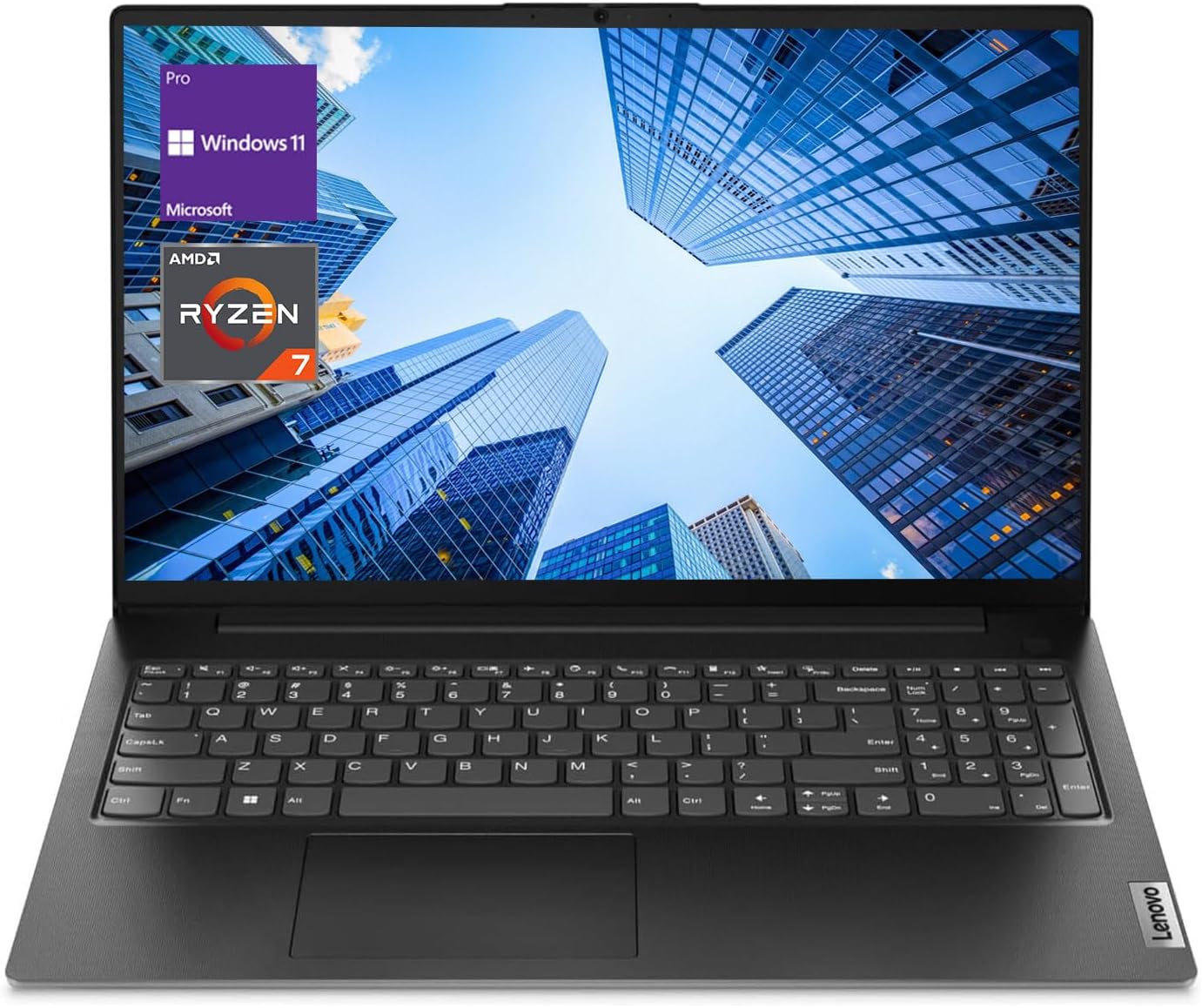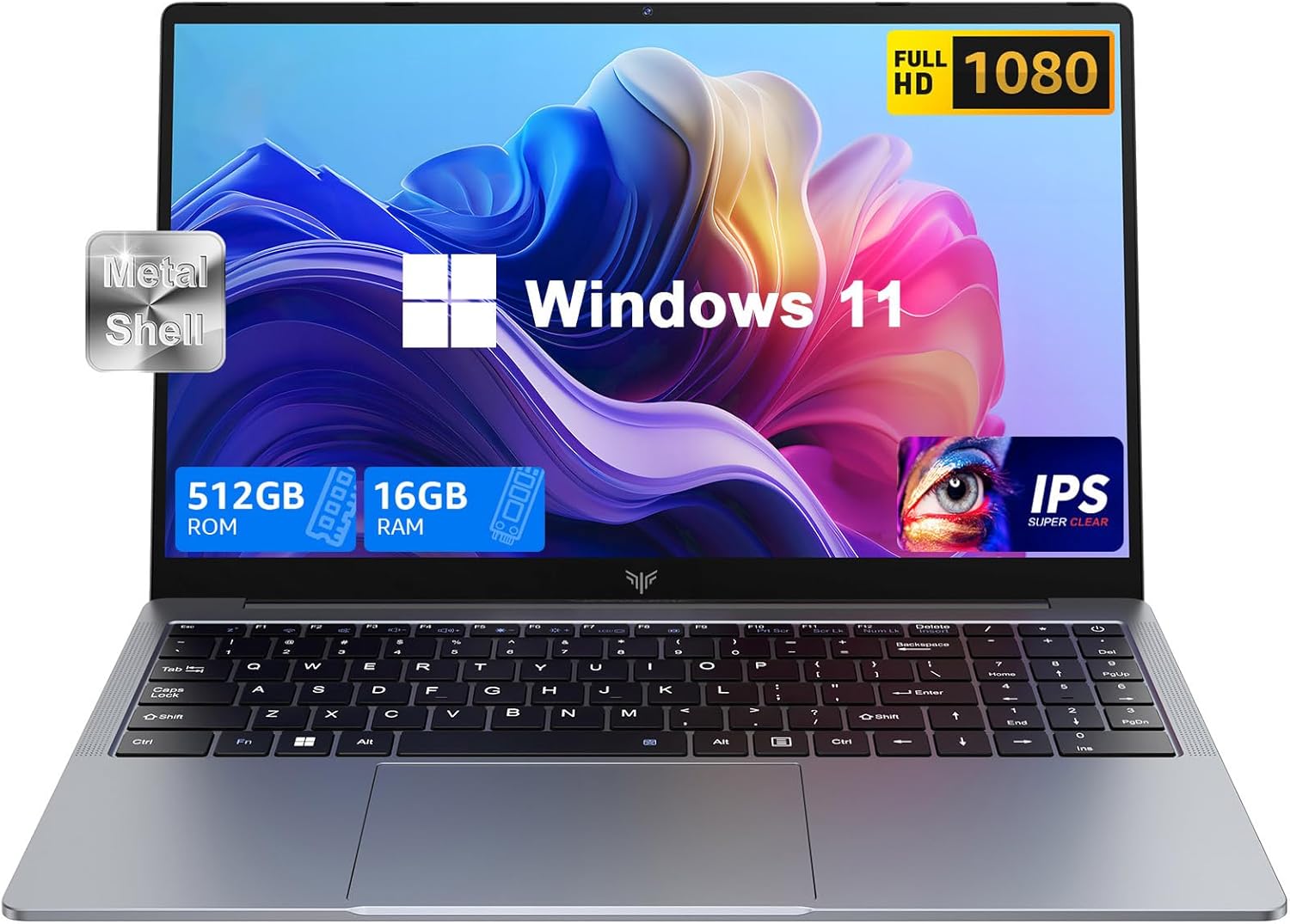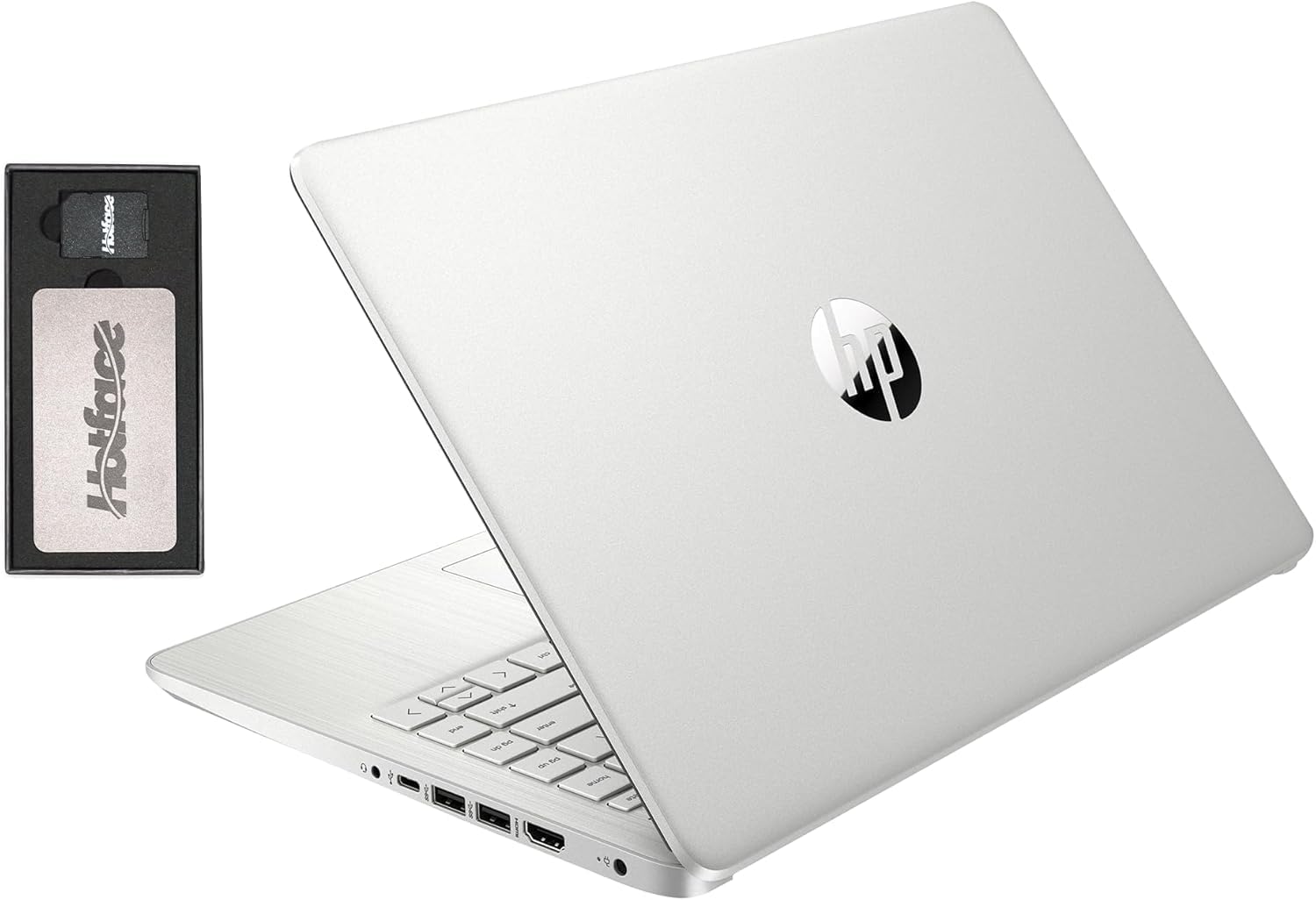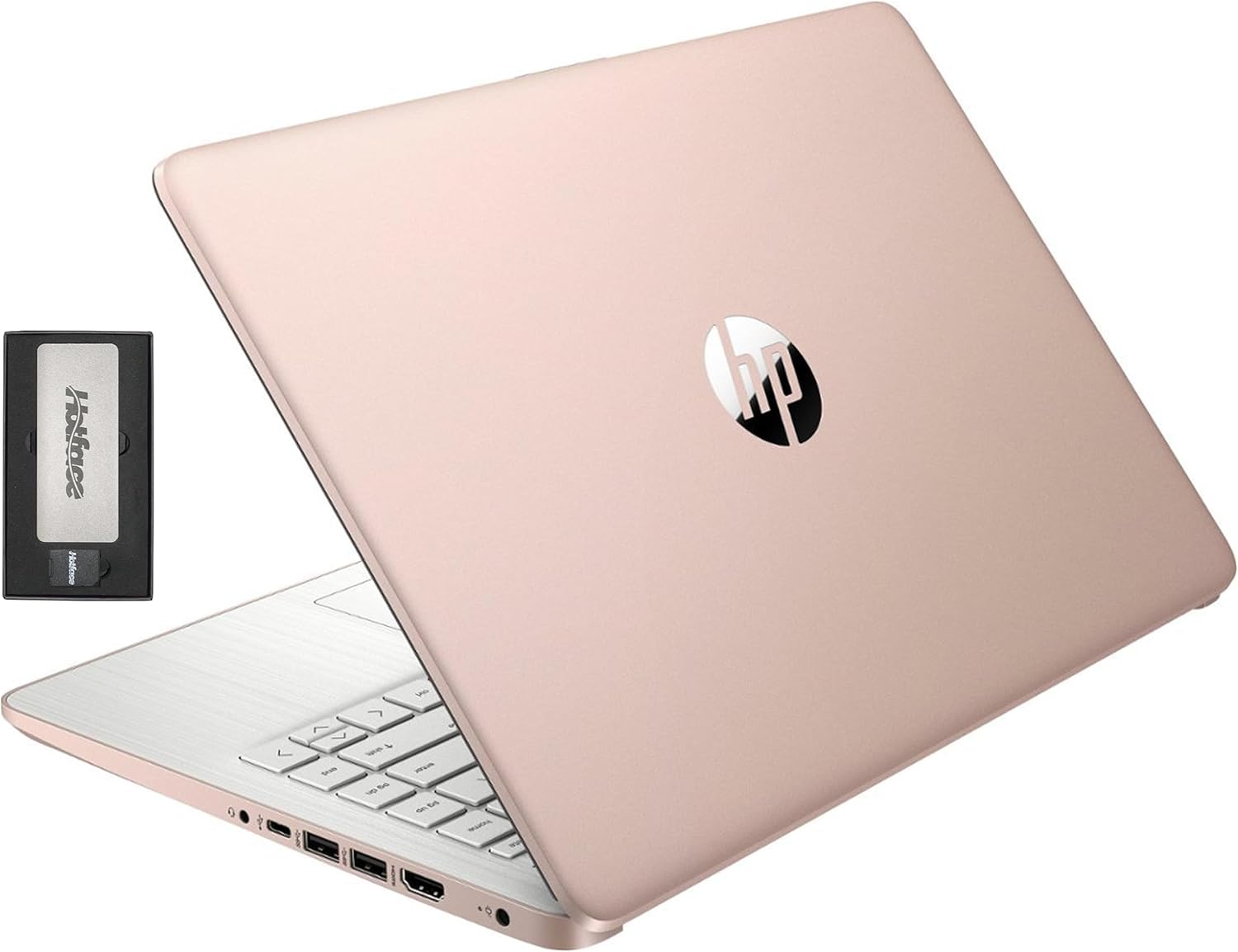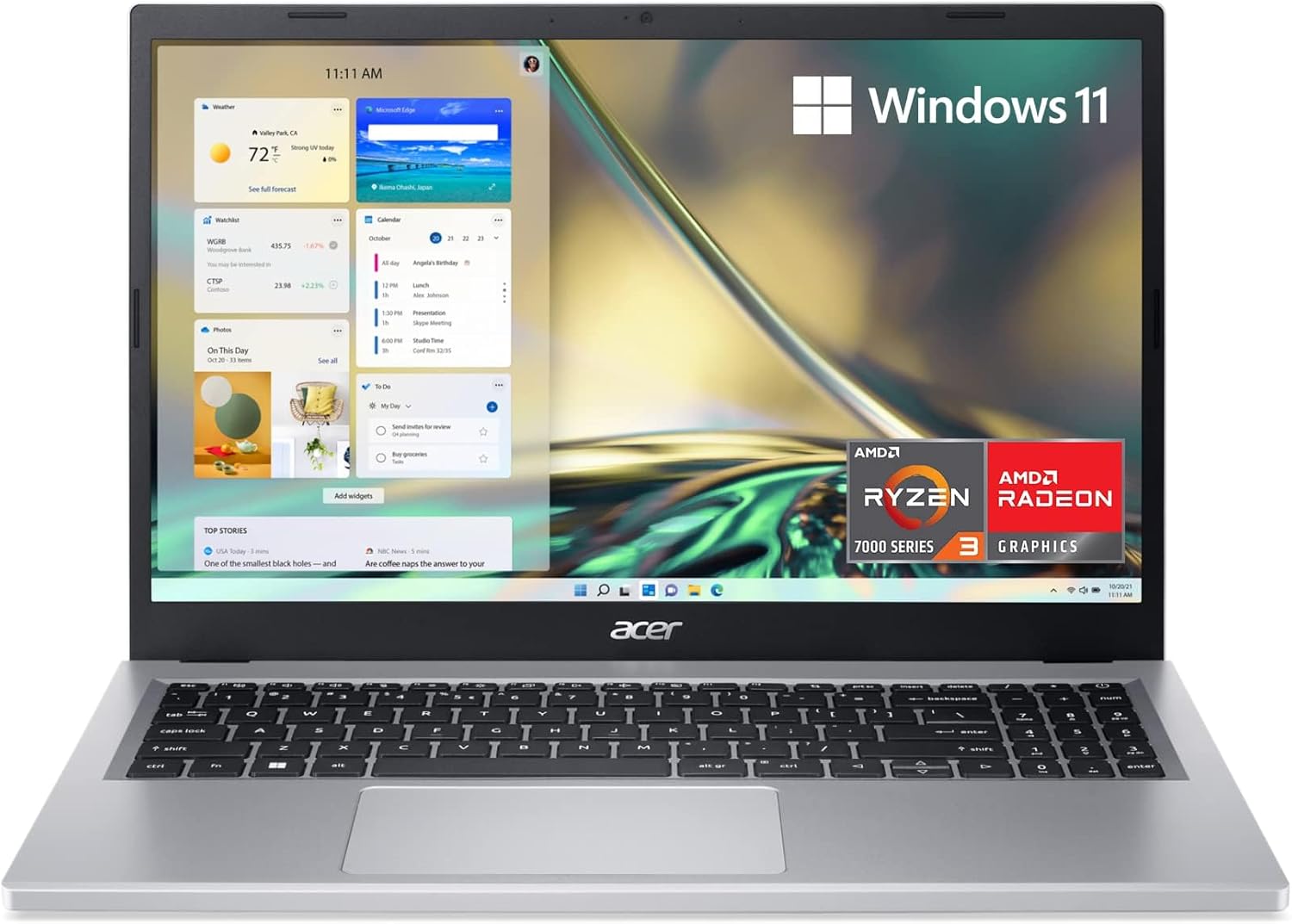Here’s an overview of the Best Laptops For that we’ll explore today:
In modern music production, portable laptops that balance CPU performance, RAM, storage, and reliable I/O are essential for tracking, mixing, and composing on the go. The five models below span a budget-to-premium range and include a mix of Intel, AMD, and entry-level dedicated features that impact DAW performance, plugin loading, and multi-track projects. Our testing focused on CPU-bound tasks (virtual instruments, sample libraries, and plugin chains), memory-heavy sessions (large projects with multiple takes and audio regions), disk I/O (project file sizes, sample libraries), thermal behavior under sustained load, display readability for long mixing sessions, and general usability (keyboard, ports, OS workflow). Each product is evaluated for music production use cases, such as live tracking, sample-based production, and collaborative workflows, with attention to real-world constraints like fan noise, battery life during sessions, and expandability.
1. Lenovo V-Series V15 Business Laptop
- Brand: Lenovo
- Manufacturer: Lenovo
Overview: Lenovo’s V15 G4 ABP pairs a high-end Ryzen 7 7730U with a massive 40GB RAM and a 1TB PCIe NVMe SSD, all in a 15.6″ chassis. The configuration targets sustained multi-tasking, large sample libraries, and complex mix sessions, with Windows 11 Pro optimizing enterprise-style workflows and security. The inclusion of a numeric keypad and a full complement of ports (HDMI, RJ45, USB-C, USB-A) supports external interfaces, MIDI controllers, audio interfaces, and networked collaboration. This model stands out for raw multi-threaded headroom and storage capacity, making it a strong all-around workstation for music production, video editing, and general productivity at a premium but still portable price point.
Performance-wise, the Ryzen 7 7730U (8 cores, 16 threads) paired with 40GB RAM minimizes paging during large plugin chains and sample-heavy projects. The 1TB NVMe SSD ensures fast project boot, sample loading, and session streaming. In practice, this laptop handles complex sessions with multiple virtual instruments and effects without aggressive CPU throttling, provided ventilation is adequate. The Windows 11 Pro edition adds business-focused features like BitLocker and remote management which can be advantageous in studio environments or educational settings. Thermals on longer sessions may require elevation of the lid or an external cooling solution to maintain peak turbo performance.
Pros
- 40GB RAM enables extensive plugin chains and large sample libraries without swap
- 1TB NVMe SSD offers fast boot, load times, and ample project storage
- Robust I/O including HDMI, RJ45, USB-C/USB-A supports diverse audio interfaces
- Windows 11 Pro aids professionals with security and management features
- Numeric keypad is convenient for fast DAW workflow and numeric entry
Cons
- Likely heavier under sustained load; potential fan noise in quiet studios
- Battery life may diminish significantly during CPU/GPU-heavy sessions
- Premium price relative to mid-range competitors
2. 2025 Laptop with Windows 11
- Brand: MALLRACE
- Manufacturer: MALLRACE
Overview: The MALLRACE notebook targets a balance of performance and portability with a 12th-gen Intel quad-core CPU, 16GB RAM, and a 512GB SSD, all in a slim 15.6″ chassis. It prioritizes general multitasking and business-grade reliability while providing all-around connectivity (USB-C, USB-A, HDMI, Wi-Fi, Bluetooth). For music production, the key strengths are adequate RAM and flash storage, plus a 15.6″ IPS display for comfortable editing sessions. However, the base platform may require careful power management to sustain real-time audio workloads if plugins push CPU usage hard.
In practice, the 12th-gen Intel core with 16GB RAM handles DAW sessions with several tracks and plugins with reasonable headroom, and the 512GB SSD supports project archiving and sample libraries. The battery life claim of just over 4 hours is modest for on-the-go recording, so it’s better suited for studio desktops or short field sessions. Build weight (around 1.7 kg) keeps it portable, and the 15.6″ display offers good working space for mixing and sequencing. For interface expansion, the multiple USB ports and HDMI enable direct connection to audio interfaces and control surfaces.
Pros
- Balanced CPU/GPU for everyday music production tasks
- 16GB RAM with 512GB SSD provides solid multitasking and storage
- Full set of ports (HDMI, USB-C, USB-A) for audio interfaces and controllers
- IPS display offers accurate colors and wide viewing angles
- Relatively affordable for the feature set
Cons
- CPU headroom can be limited on very large templates with many plugins
- Battery life is not ideal for extended field sessions
- Battery may impact sustained performance under thermal constraints
3. HP Stream 14″ HD BrightView Laptop
- Brand: HP
- Manufacturer: HP
Overview: The HP Stream N150 configuration emphasizes value and portability, with 16GB RAM and a sizeable storage bundle split between eMMC and a docking station expansion. It ships with Windows 11 Home in S mode, which can limit some DAW software choices out of the box but can be switched to full Windows for increased flexibility. The 14″ BrightView display keeps the footprint small and the price accessible, making it attractive for beginners and students who are starting music production on a budget. The dock set adds storage and expandability, albeit at the cost of additional bulk and potential clutter.
Performance-wise, the Celeron N150 is an entry-level CPU that will handle basic DAW tasks with limited plugin usage and light projects. For music production, this may translate to longer load times and reduced headroom when using sample-based libraries or CPU-intensive virtual instruments. The 16GB RAM helps with multitasking and background processes, but the overall system responsiveness will be bounded by the CPU. The Silver build and BrightView display are practical for classroom or home studio setups, and the 11-hour claimed battery life supports extended uses away from power, albeit under non-audio workloads.
Pros
- Excellent value with 16GB RAM and generous storage bundle
- Lightweight and compact for travel or small studios
- Docking station set increases expandability and offline storage
- BrightView display aids in long editing sessions during daytime
- Long battery life for general use
Cons
- Celeron N150 may struggle with large, plugin-heavy sessions
- Windows 11 S mode can restrict DAW software selections until switched
- Thermals and fan noise are potential concerns under sustained audio workloads
4. HP Stream 14″ HD BrightView Laptop
- Brand: HP
- Manufacturer: HP
Overview: This Gold-edition HP Stream advances storage versatility with a 416GB total storage footprint via an eMMC core plus a larger docking station expansion. The N4120 is a step up from the N150 in terms of integrated performance, making it more capable for entry-level music projects and everyday productivity. The 7-in-1 docking station adds practical value for plugging in audio interfaces, external drives, and peripherals. The Gold color is purely aesthetic but can help in a crowded studio setup.
In real-world use, the N4120 provides modest improvements in handling light multi-track projects and basic virtual instruments, especially when paired with ample RAM and fast storage. However, as with budget-friendly HP Streams, sustained CPU-intensive tasks will quickly push the CPU, leading to longer render times and potential throttling. The 16GB RAM helps, but the performance ceiling remains limited by the CPU and thermals. The combination of eMMC performance with a larger docking set is nice for flexible storage and easy desk setup.
Pros
- N4120 offers better performance than base-tier Celerons
- 416GB total storage via eMMC plus docking expansion
- 7-in-1 docking station adds versatile connectivity and storage
- 16GB RAM supports smoother multitasking
- Long-listed battery life suitable for on-the-go work
Cons
- CPU limits sustained audio projects with many plugins
- S-mode limitation persists until switched to full Windows
- Thermals can throttle under load, affecting real-time performance
5. Acer Aspire 3 A315-24P-R7VH Slim Laptop | 15.6″ Full HD | AMD Ryzen 3 7320U Quad-Core | AMD Radeon Graphics | 8GB LPDDR5 | 128GB NVMe SSD | Wi-Fi 6 | Windows 11 Home
- Brand: acer
- Manufacturer: acer
Overview: The Acer Aspire 3 offers a compact 15.6″ Full HD display with a Ryzen 3 7320U and 8GB of LPDDR5 RAM in a slim chassis. It provides a modern feature set (Wi-Fi 6, NVMe storage) at a budget-friendly price, targeting entry-level production workflows and general productivity. The 128GB NVMe SSD is likely to feel cramped for large sample libraries, but the RAM and processor are adequate for lighter DAW sessions and MIDI-centric work with smaller projects. The 15.6″ display and backlit keyboard (noted as a feature in some listings) add practical usability in creative tasks.
In practice, the Ryzen 3 7320U delivers solid efficiency and reasonable performance for small-scale productions, such as one or two virtual instruments with moderate effects. The 8GB RAM can be a bottleneck when running multiple tracks or large sample libraries, but the 128GB NVMe SSD helps with fast project access. The 15.6″ IPS display is excellent for editing and mixing, while Wi-Fi 6 supports stable online collaboration and cloud-based sample management. The device is best suited for students, hobbyists, or as a portable secondary rig rather than a primary production workstation.
Pros
- Affordable entry-point with modern Ryzen 3 CPU
- 128GB NVMe SSD offers snappy boot and file access
- 8GB RAM is upgrade-friendly in some configurations
- Wi-Fi 6 for reliable wireless connectivity
- 15.6″ Full HD display provides comfortable editing space
Cons
- Only 8GB RAM may limit large projects or multiple plugins
- 128GB NVMe can fill quickly with sample libraries
- Windows 11 Home (not Pro) may limit enterprise features
Frequently Asked Questions
We’ve compiled answers to the most common questions about laptops fors to help you make an informed decision.
Conclusion
Final thoughts: For music producers prioritizing performance and expandability within a mid-to-premium budget, the Lenovo V-Series V15 G4 ABP delivers the best long-term viability, especially for large projects and professional workflows.
For students and mobile creators, the MALLRACE and HP Stream lines provide compelling value with adequate RAM and modern connectivity, though users should be mindful of CPU limits and S-mode restrictions.
The Acer Aspire 3 offers an approachable gateway into music production, perfect for beginners or as a secondary rig, with the caveat of potential bottlenecks in more demanding sessions..
